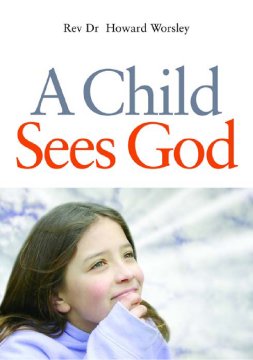
Additional Information
Book Details
Abstract
In A Child Sees God, Howard Worsley explores how we can all learn from a child's perspective of the world and shows how a child's eye view of the Bible reveals many interesting ideas about ethics and morality, and provides new ways of understanding these ancient stories.
By asking families to read Bible stories to their children and discuss these stories with them, recording the ensuing conversations, Howard Worsley offers not only fresh insights into the meaning and significance of these stories but also reflections on how adults can use the Biblical text in the company of children at different stages of development. Following the theory that all stories ever written fall into one of seven categories, this book shows that the themes of the Bible are no different, dividing stories into sections containing texts of wonder, adventure and leadership, terror, justice and judgement, comfort and hope, comedy, and mercy and forgiveness.
This fresh look at the Bible through the eyes of children will be a fascinating read for parents, teachers, ministers, and anyone with an interest in child spirituality or ethics.
Children see what grown-ups miss. That is one reason why we should go on telling Bible stories to them. Dr Worsley's bold claim, in this fascinating and ground-breaking study, is that the church needs "the original vision of childhood" to renew its understanding of the Biblical texts. Children can show us what the Bible has to say to us all. They can also make us ask the right questions. This book is essential reading for any who have any lingering doubts about whether the Bible can be a children's book too.
Church Times
Howard Worsley is a champion for children. He wants their voice to be heard, and for adults to fully appreciate the wisdom they have to offer. This book is a vehicle for achieving those aims, by exploring children's views and reflections about a selection of Bible stories... Sandwiched in between an introduction and a final chapter considering the implications of the findings, the core of the book is neatly divided into seven chapters according to the type of story discussed int them... One of the delights of this book is to see how children not only interpret the stories but how they make associations to their own worlds in order to make meaning... Nevertheless I suggest that all who are interested in listening to children with regards to how they make meaning with refernce to religion, scripture and spirituality will find this book of value, not only those living or working within the Christian tradition.
Journal of Religious Education
Ever wondered what your child or children are thinking about when you read the bible together? Well, if you are looking for a book that illustrates the freshness with which children can still respond to the Bible, and its relevance to life today, then A Child Sees God by Rev Dr. Howard Worsley, is that kind of training manual. It certainly provided an interesting insight into how children of varying ages, still respond to the Bible.
TheGoodBookStall.org.uk
Rev Dr Howard Worsley is a researcher, a teacher and a priest. He gained a BA in English at Manchester University and followed this with an MA in Theology at Nottingham University and a PhD in Education at Birmingham University. His long-term research interest is to uncover the original vision seen by children in encountering what adults call "spiritual reality". Howard is currently the Diocesan Director of Education for Southwell & Nottingham and Chair of the National Association of Church Directors of Education. He lives in Nottinghamshire with his wife, Ruth, a parish vicar, and is father to three sons with whom he variously explores the world by canoe, bike or foot.
Table of Contents
| Section Title | Page | Action | Price |
|---|---|---|---|
| 1. Introduction: Why uncertainty? Why listen to marginalised youth? | |||
| 2. Key concepts | |||
| 3. Youth-centred research and uncertainty: Method and approach | |||
| 4. Ethiopia context and themes | |||
| 5. Rural Fogera: Land shortages, adult status and migration | |||
| 6. Urban Woreta: Migrating in to street situations | |||
| 7. Drought-prone Hetosa: Status, success and migration | |||
| 8. Addis Ketema: Identity and support in street situations | |||
| 9. Nepal: Context and themes | |||
| 10. Rural Kapilvastu: Discrimination and uncertainty | |||
| 11. Rural Kapilvastu: Dealing with change and tradition | |||
| 12. Sindhupalchowk: Environmental fragility, youth responsibilities and migration in rural Nepal | |||
| 13. Kathmandu: Environment vulnerability, slums and family-support | |||
| 14. Genderfluidity: LGBTQI & third gender in Kathmandu | |||
| 15. Policy themes and impact: Introduction | |||
| 16. Conclusion: Listening to marginalised youth on uncertainty |
